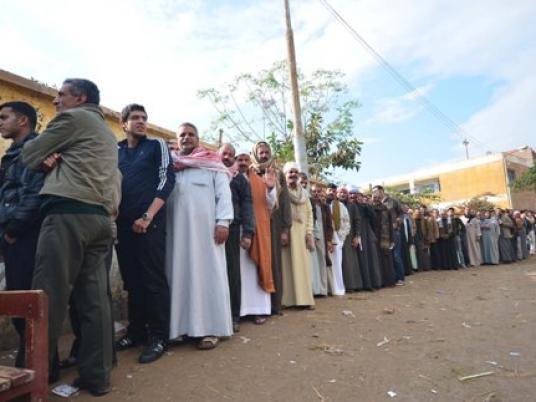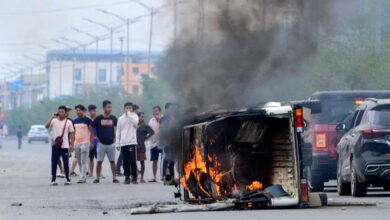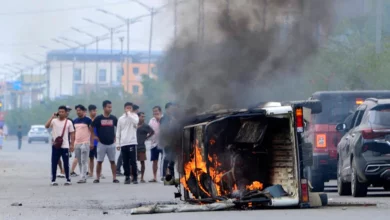
The commencement of the first parliamentary session on Monday leads Egyptians to reevaluate the traditional association between elections and violence.
Against all expectations, the first post-revolution parliamentary elections witnessed significantly less violence than the campaigns of previous years.
In 2005, the National Democratic Party (NDP) won nearly 60 percent of seats in parliament after 14 people were killed in election-related violence, according to human rights organizations and media reports. In 2010, the NDP won an overwhelming 90 percent of seats after 28 people were killed in what was described by observers as a highly fraudulent election. Frustration with these elections helped inspire the protests in January of the following year.
The recent non-violent elections, however, contrasted not only with past campaigns, but also with the many incidents of conflict that marred 2011. Since the ruling Supreme Council of the Armed Forces (SCAF) assumed responsibility for managing the transitional phase last February, Egypt has witnessed at least six separate incidents of violence involving the military and the Interior Ministry’s security forces.
These incidents occurred during a year in which the media increasingly called attention to a lack of security in post-25 January Egypt. In light of the peaceful elections, even more observers are asking why this security gap remains.
"The SCAF dealt with the elections as if it were a referendum on its legitimacy,” said Alaa Abdel Moneim, a lawyer and former MP. “It managed to secure the electoral process in accordance with a plan that it had put into place a few weeks prior to the elections. So why didn’t it do the same when it came to the problem of lack of security?"
In a press statement prior to the elections, SCAF member Major General Ismail Othman said the armed forces would be responsible for securing over 95 percent of polling stations nationwide.
Voting began on 28 November 2011 and continued for a month and a half over three rounds, at a rate of nine governorates in each round. Only one death was reported throughout the three electoral rounds: a killing that occurred during a feud between supporters of different candidates in Monufiya. A number of additional brawls were reported by media and human rights organizations, but none resulted in loss of life.
"Thank you SCAF for your success in keeping the masses under the illusion that there is lawlessness, as it is not normal for security to become established on the streets like this and for the elections to pass so peacefully following months of violence affecting the country," said political activist Nazly Hussein.
"Groups of thugs attacked us during many protests, especially during the events on Mohamed Mahmoud Street that preceded the election by a few days. So where did they go after that?" asked Hussein.
The violence in and around Mohamed Mahmoud Street, where security forces clashed with protestors for a week, left at least 45 people dead.
But security expert and former State Security officer Fouad Allam attributes the peacefulness of the elections to public awareness and to the active participation of many citizens.
"Popular participation acted as a barrier to any acts of violence,” he said. “The security role of both the armed forces and the police was limited to securing the transfer of ballot boxes from polling stations to the counting centers.”
According to the Central Agency for Public Mobilization and Statistics, nearly 60 percent of eligible voters participated in the elections.
Allam added that the peaceful nature of the elections also showcased the neutrality of the SCAF, because in past years the ruling government traditionally sponsored violence as a way of ensuring the NDP’s victory in elections.
State-sponsored violence aside, many observers also blame the problems of previous elections on the tribal aspect of voting in many parts of the country, especially in Upper Egypt. During the recent elections, such tensions were defused when candidates with a history of involvement in clashes were subsumed into the lists of Islamist parties such as the Freedom and Justice and Wasat Party. With more focus on political parties, individuals and tribal connections became less important.
Abdullah Helmy, a political activist and member of the Revolutionary Youth Coalition, said that the election boycott by some revolutionaries might have also resulted in less violence.
"The fact that the activists of Tahrir Square who are against the SCAF’s policies were away from polling stations prevented any direct contact between them and the armed forces at the voting centers,” he said.




